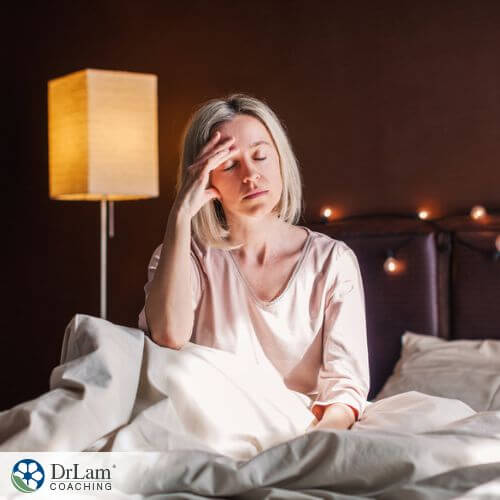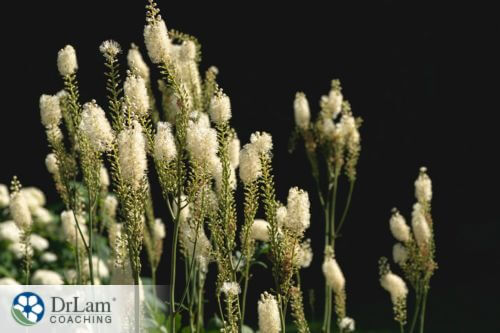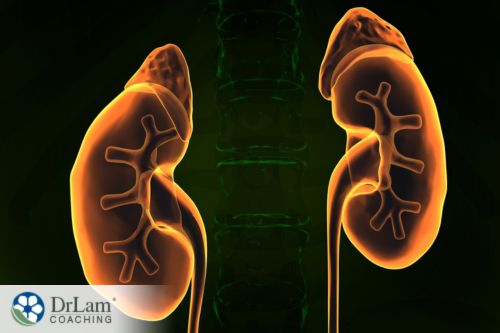 Sleep challenges are something many of us will experience at some point in our lives. Whilst sleep challenges are brought on by many different causes such as stress and anxiety, there are some lesser-known causes of sleep challenges. One of these causes in women is brought on by perimenopause. This article will explore the reasons behind these sleep challenges and supplements, herbs, and lifestyle changes for sleep support during perimenopause.
Sleep challenges are something many of us will experience at some point in our lives. Whilst sleep challenges are brought on by many different causes such as stress and anxiety, there are some lesser-known causes of sleep challenges. One of these causes in women is brought on by perimenopause. This article will explore the reasons behind these sleep challenges and supplements, herbs, and lifestyle changes for sleep support during perimenopause.
Perimenopause is the transition period to menopause, and it can last between two and ten years. During this time, the ovaries will start to release eggs more irregularly, reducing fertility, and your periods will become more inconsistent.
Hormone-wise, estrogen will rise and fall unevenly and eventually decrease. This will cause progesterone to decrease. When progesterone decreases, it also changes the ratio of progesterone to estrogen and can result in estrogen dominance. During this time, the stress hormone cortisol may aso increase due to the stress your body is going through.
With these changes in hormones, it can result in a range of symptoms that include:
These symptoms can cause multiple barriers to sleep and can affect the quantity and quality of sleep. But while these symptoms are common, every individual is different and will experience perimenopause differently.
Sleep is crucial for your overall wellness. Poor sleep increases the risk of:
It also will affect activities during the day and can decrease work performance and increase the risk of injuries or accidents occurring. These symptoms can also exacerbate the symptoms already experienced during perimenopause.
Several remedies can help to provide sleep support during perimenopause. These remedies include supplements, lifestyle changes, and removing or reducing the barriers to sleep caused by symptoms of perimenopause.
There is a range of different types of supplements that can assist with sleep support during perimenopause. Within this category of supplements are nutrient and herbal supplements.
This amino acid is common in green and black tea and has a range of benefits. The structure of L-Theanine is similar to the brain hormone glutamate. By being similar, it can bind to glutamate receptors and block glutamate from binding in the brain, therefore quietening down the brain, and helping to facilitate falling asleep. L-Theanine helps to stimulate the alpha brainwaves which help to reduce stress hormones and increase calming hormones such as Gamma-Aminobutyric Acid (GABA) in your body.
Studies show that this nutrient can assist with sleep support during perimenopause by calming the body, helping to facilitate sleep, and helping to reduce the occurrence of waking up in the middle of the night. To reap this benefit, studies suggest a dose of 200mg per day. Tea does contain this nutrient in smaller amounts, with the amount of L-Theanine ranging from 25-60mg per cup of tea, depending on the tea. Those with adrenal fatigue should beware of caffeine in tea, so Dr. Lam recommends Adrenal Quiet as a supplement that contains L-theanine and inositol that helps with gentle sleep.
 This brain hormone is a calming hormone and essentially can help your brain to switch off, helping to facilitate falling asleep. Several nutrients, such as L-Theanine, help to assist with the production of GABA; however, GABA can also be taken directly in the form of a supplement, like Dr. Lam's GABAX.
This brain hormone is a calming hormone and essentially can help your brain to switch off, helping to facilitate falling asleep. Several nutrients, such as L-Theanine, help to assist with the production of GABA; however, GABA can also be taken directly in the form of a supplement, like Dr. Lam's GABAX.
Studies are positive, with one study showing an improvement in falling asleep, sleep maintenance, and improved sleep quality after a combination of GABA and 5-HTP were used.
Short for 5-hydroxytryptophan, this nutrient is made by your body and is a building block for the brain hormone serotonin. Serotonin is not only a natural anti-depressant but also helps to facilitate sleep by assisting in the production of melatonin. Melatonin is a hormone that your body makes in response to darkness and helps to induce sleep. During perimenopause, low progesterone can cause a reduction in melatonin. This can cause difficulties falling asleep as well as remaining asleep.
Serotonin can assist here by helping to naturally increase melatonin levels. Your body naturally makes 5-HTP; however, supplementing with this nutrient can help to increase the conversion of 5-HTP to serotonin and assist with sleep. Dr. Lam's HTPro provides 100mg of 5 HTP- which is a good starting dose for a perimenopausal woman.
This amino acid may sound familiar, and that is because it is a building block for 5-HTP, thus being involved in the production of serotonin. L-Tryptophan is found in a variety of foods such as:
It can also be taken as a supplement, helping to indirectly assist in the production of serotonin by assisting in the conversion of 5-HTP.
If you want to cut to the chase and take a supplement that is directly involved in your body's sleep and wake cycle, then melatonin may just do the trick. Melatonin is the hormone responsible for your body's sleep cycle and is released by your body in response to darkness. With the changes in progesterone, melatonin can reduce, affecting your body's sleep cycle.
Whilst melatonin can directly assist with sleep, it lacks the additional benefits that 5-HTP and L-Tryptophan may provide in terms of improving mood and reducing anxiety levels which can also affect sleep.
Studies focusing on the effect of melatonin and sleep are not conclusive and more research is necessary.
This herb naturally occurs in Africa and Asia and is classified as an adaptogen. Adaptogens help your body adapt to stress, anxiety, and tiredness. It has many benefits such as helping to conserve energy, providing iron, improving the overall stress response, helping to reduce inflammation, and assisting with hormonal balance.
One study focusing on the hormonal effects of ashwagandha found that it helped not only reduce tiredness and insomnia but also helped to improve estrogen levels. This increase in estrogen can indirectly help with sleep by reducing barriers to sleeping such as night sweats and hot flashes.
This herb is generally safe; however, it cannot be used if you have an overactive thyroid gland. Large doses can cause nausea, vomiting, and diarrhea. Also, beware for those with adrenal fatigue in later stages that it can overexcite the adrenals rather than relax them.
 This herb, native to North America, is one of the most well-studied herbs in relieving symptoms of perimenopause. Black cohosh can help to naturally increase estrogen in the body, helping to relieve perimenopausal symptoms. Studies suggest that it can help directly as well as indirectly with sleep quantity and quality. It helps directly by helping to reduce sleep disturbances. Indirectly, it helps to reduce hot flashes and night sweats which can cause sleep disturbances.
This herb, native to North America, is one of the most well-studied herbs in relieving symptoms of perimenopause. Black cohosh can help to naturally increase estrogen in the body, helping to relieve perimenopausal symptoms. Studies suggest that it can help directly as well as indirectly with sleep quantity and quality. It helps directly by helping to reduce sleep disturbances. Indirectly, it helps to reduce hot flashes and night sweats which can cause sleep disturbances.
The dose of black cohosh ranges from 20 to 100mg per day. Note that it is not safe for individuals with liver conditions.
This herb can help to reduce anxiety and panic disorder, and it can improve sleep in terms of quality and quantity. Studies found that after 14 days of supplementing with valerian extract, individuals found a significant effect on their sleep. After 28 days, this effect was cumulative and found to be statistically significant.
Studies have compared this herb to medications commonly used for anxiety and sleep and there have been no difference between the two in terms of improvements in sleep quality. The dose that was used in these studies was 600mg per day. Valerian is safe to use except in the case of liver conditions.
The first thing hops brings to mind may be beer. However, hops have many additional uses outside of their well-known role in beer. Hops extract is a potent phytoestrogen, a compound that can produce estrogen-like effects. Studies suggest that a combination of hops and valerian can lead to a significant improvement in sleep. However, some studies did not show a significant improvement.
The average dose for hops is 300-400mg/day. Also, note that it is not advised for individuals who are on some medications as it can cause interactions.
These lifestyle changes can also be effective sleep support during perimenopause. Lifestyle changes include:
Stress affects your body in many ways, including altering your reproductive hormones. Your body can handle stress by receiving support from your adrenal glands and your NeuroEndoMetabolic (NEM) Stress Response system. Your adrenal glands release stress hormones such as cortisol in response to stress. If stress becomes chronic, it can cause your adrenal glands to become depleted. Because cortisol shares many precursors with other key hormones, too much cortisol leaves fewer other hormones. This depletion can then cause imbalances within the NEM system. This results in Adrenal Fatigue Syndrome (AFS). There are six different circuits in the NEM system, composed of related organs and systems, and the symptoms of AFS will depend on which circuit has an imbalance.
 The one circuit within the NEM system is the Hormone circuit. This circuit is responsible for your hormones and consists of the adrenal glands, thyroid glands, and reproductive organs. An imbalance within the hormonal circuit can cause changes in estrogen and progesterone. This change can cause a decline in progesterone and can result in estrogen dominance. Symptoms include fatigue, infertility, weight gain, pre-menstrual syndrome (PMS), irregular periods, and difficulties sleeping. These symptoms can be very similar to perimenopause and may be mistaken for perimenopause.
The one circuit within the NEM system is the Hormone circuit. This circuit is responsible for your hormones and consists of the adrenal glands, thyroid glands, and reproductive organs. An imbalance within the hormonal circuit can cause changes in estrogen and progesterone. This change can cause a decline in progesterone and can result in estrogen dominance. Symptoms include fatigue, infertility, weight gain, pre-menstrual syndrome (PMS), irregular periods, and difficulties sleeping. These symptoms can be very similar to perimenopause and may be mistaken for perimenopause.
The same guidelines for sleep support during perimenopause can be used for sleep difficulties caused by AFS and hormone imbalance. The only difference is that an imbalance within the hormonal circuit can be balanced whereas perimenopause is a natural process of life that cannot be "fixed".
In AFS, your body can become very sensitive to any new supplements and herbs introduced to the body. This can result in severe reactions setting you back on your healing journey. It's also important to remember that the FDA does not regulate supplements. This can result in supplements with poor-quality ingredients and purity issues.
If you are looking to use a supplement to assist you with your sleep, chat with your healthcare provider first. They will be able to provide you with the necessary support and guidance.
Perimenopause can cause a range of uncomfortable feelings and can rob you of much-needed sleep. This is caused by the changes in hormones leading to sleep difficulties as well as other symptoms which can indirectly reduce your sleep.
Several supplements and herbs may help during this time, including 5-HTP, melatonin, L-Theanine, black cohosh, ashwagandha, and others. However, be sure to talk to your doctor before taking any new supplements.
If these symptoms resonate with you and you are concerned your hormones may be out of balance, the Dr. Lam team can be of assistance. You can call our team at +1 (626) 571-1234 or click here for a free initial call.
It can be difficult to choose a remedy or a combination of remedies for sleep support during perimenopause as every individual is different and will react differently. Having guidance from a healthcare professional can help you find the best remedy or remedies for your body.
